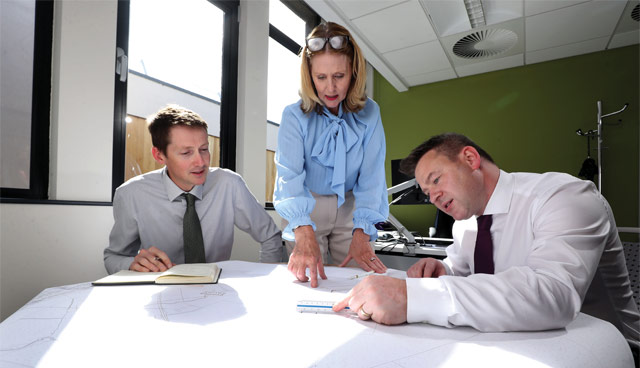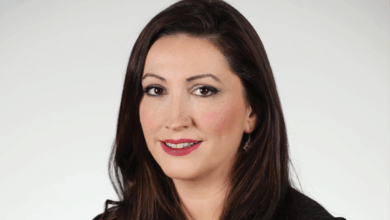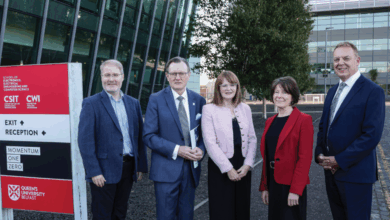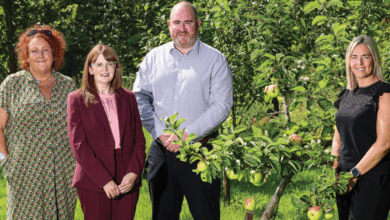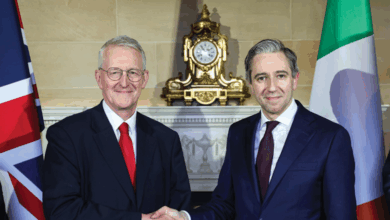A beacon for decarbonisation
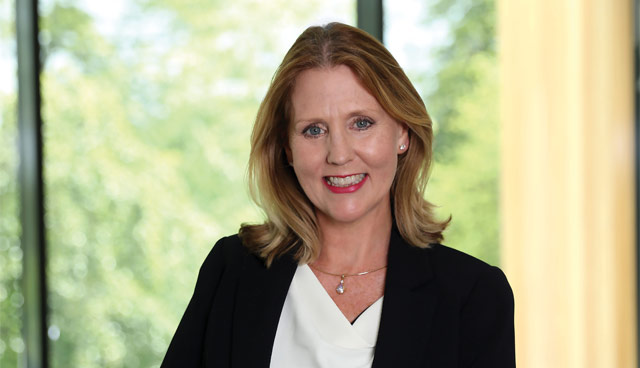
With the UK Government’s ambitious commitment to climate action in place and work on Northern Ireland energy policy progressing, agendaNi talks to Jo Aston, Managing Director of SONI (System Operator for Northern Ireland), about the company’s role in driving decarbonisation.
An ambitious commitment by the UK, hailed as arguably the world’s most ambitious plan to tackle climate change, which will see the UK strive for ‘net-zero’ greenhouse gas emissions by 2050, has been recognised as a ‘big moment’ for the climate. In tandem, the Irish Government has revealed its own forthright mission for decarbonisation. Meanwhile in Northern Ireland, civil servants are mapping out future energy policy to take us to 2030 and beyond.
All of this is against a backdrop of ever stronger calls for urgent, decisive action and increasingly significant shifts in consumer behaviour.
The stage is set and one of the key actors is SONI (System Operator for Northern Ireland), the organisation responsible for running the transmission grid and planning for its future. SONI’s recently appointed Managing Director, Jo Aston, is clear about the company’s role in developing and delivering a decarbonised economy: “SONI has a significant role to play in leading the transformation of the energy system if Northern Ireland is to achieve full decarbonisation.
We have the full breadth of view, the expertise, the data, the knowledge of the market and the creativity needed to navigate Northern Ireland through the challenges of this transition and to help it grasp the opportunities that come with it.
“Within the Single Electricity Market (SEM), which operates across the island, policies on renewables for Northern Ireland and Ireland are aligned. This includes targets of 40 per cent of total electricity consumption to be generated from renewable sources by 2020.
“In Northern Ireland in 2018, 36 per cent of electricity demand was met by renewable sources, while in Ireland the figure was 32 per cent. These are the highest ever levels of electricity from renewable generation on the all-island power system and provide a clear indication that both jurisdictions are on track to meet their 2020 targets.”
SONI, through a joint venture with EirGrid (the system operator for Ireland), operates the all-island wholesale electricity market. Aston is keen to underline the importance of the market in the clean energy transition: “In my previous role with the Utility Regulator I was proud to head up the delivery of the I-SEM project, an ambitious and successful programme to create a more liberalised and integrated wholesale electricity market. That’s one of the reasons I’m so pleased to be in this role, because SONI has had to implement the upgrade and I can see the benefits becoming a reality.
“The SEM influences around 60 per cent of the Northern Ireland consumer’s electricity bill and the competition it introduced has increased the downward pressure on prices. Now we need to look at sustainability and how to balance that with efficiency. That is the next exciting chapter in the evolution of the market design.”
Leading example
The clean energy transition presents a challenge to SONI but Aston believes that her highly-skilled staff can and will deliver decarbonisation of the power system: “We have the full breadth of view, the expertise, the data, the knowledge of the market and the creativity needed to navigate Northern Ireland through the challenges of this transition and to help it grasp the opportunities that come with it.
“In fact, by working with government, the Utility Regulator and our other key stakeholders such as NIE Networks, together we can develop Northern Ireland into a leading example of a highly successful decarbonised economy.
“We need to build on the gains we have made, it is a critical time. Northern Ireland needs to play its part in tackling climate change by using its devolved responsibility for energy. However, transformation of the energy sector is not simply about decarbonisation but also, decentralisation, democratisation, diversification and digitalisation of technologies in the power industry.
“These are developments that will create the ability to exchange information and potentially trade energy from home solar or storage or, indeed, provide demand response at an individual user level. This ‘democratisation’ will allow consumers to take their energy future into their own hands. That is why SONI’s new corporate strategy, which will be launched this autumn, is so inspiring. It is geared to overcome the hurdles presented by this change and to ensure we deliver competitively costed, sustainably generated and secure power for Northern Ireland consumers.”
Opportunity
Aston believes that getting the best value from renewables while maintaining electricity security, all within the dynamics of a wholesale market, presents as remarkable a challenge as it does an opportunity.
“Some say the ‘energy trilemma’, balancing cost, security of supply and sustainability, is dead, and that decarbonisation, decentralisation, democratisation, diversification and digitalisation now lead the change. In SONI we remain focused on delivering targets at best value for consumers.”
SONI’s role in planning and gaining consents for connections to the transmission grid has been fundamental to Northern Ireland’s success in relation to its renewable energy targets.
Delivering the second North South interconnector is fundamental if we are to achieve increased levels of decarbonisation.
SONI has recently published its ‘Transmission Development Plan Northern Ireland 2018-2027’. The plan outlines how SONI proposes to improve and develop the transmission grid over the next 10 years to ensure a safe, secure and reliable system. Aston expands on the key elements and reasons for optimising the grid: “The power system of Northern Ireland is a fully integrated system. It provides an economy of scale that delivers lower costs and greater security of supply for Northern Ireland industry and other consumers. Delivering the second North South Interconnector is fundamental if we are to achieve increased levels of decarbonisation.
“Across the island, we are currently losing £20 million in savings each year because we do not have the interconnector. In addition, we are not maximising the potential contributions from wind energy onto the system because of the significant constraints on the grid, which the North South Interconnector will alleviate.”
SONI’s operational excellence has also been pivotal to the success of electricity generation from renewables in Northern Ireland. Innovation at SONI has led to a staggering increase in the amount of renewables that the grid can handle at any one time: “If you’d said to me 10 years ago that the Northern Ireland grid could one day manage 65 per cent electricity from wind, I doubt I’d have agreed with you, due to the complexity of the engineering challenge; but we’ve done it.
“What we are doing here is world leading and today, through our commitment and expertise we are pushing that figure upwards.
“We are now working to maximise value from renewables. Our new corporate strategy aims to increase our real time operational capability for renewable generation to 75 per cent by 2020, with clear targets beyond that.
“In addition, our strategy recognises the need to evolve the wholesale electricity market to ensure that renewable generation and other supporting technologies such as storage can be efficiently and economically integrated.”
Aston is keen to emphasise a collaborative approach with a range of key stakeholders and sectors in securing a low carbon economy: “Given the success of the all-island target of 40 per cent renewables for the electricity system by 2020, our future strategy assumes an all-island target of 70 per cent for electricity from renewable sources by 2030. However, to deliver net zero greenhouse gas emissions targets by 2050, other pathways will be required. These include the electrification of heat and the increased uptake of electric vehicles.”
These pathways will require support and flexibility from the grid. To prepare the grid to meet the future needs of society, SONI has established its Tomorrow’s Energy Scenarios (TES) project.
Our new corporate strategy aims to increase our real time operational capability for renewable generation to 75 per cent by 2020, with clear targets beyond that.
Aston explains: “TES allows us to consider a range of possible ways that electricity supply and consumption may change over the next 20 years and beyond. This includes assumptions and analysis of the impact of the uptake of both electric vehicles and electrification of heat and we are building on this; a fundamental aspect of our strategy will be to create a clear guiding ‘Vision for the 2030 Power System and Market’.
“Our vision includes the realisation of a single data and analytics ecosystem, shared and developed with key stakeholders and industry. The challenge now for the SONI and EirGrid market operating teams is to deliver a power system capable of accommodating more than 90 per cent renewable energy utilisation on the system, in real time, something that has never been achieved on any power system in the world.”
It is clear that SONI will play a critical role in shaping the future of the energy system, so how does Aston view the enormity of the challenge and her company’s readiness to step-up? The Managing Director doesn’t hesitate: “I feel absolutely great about both. The team is friendly and very professional. I have been very impressed by the wide range of knowledge and skills and together with our new strategy and in collaboration with our key stakeholders we can be a beacon for change and we will deliver.”
Jo Aston joined SONI as Managing Director in May 2019. Prior to taking up this role, Jo served as Director of Wholesale Energy Regulation at the Utility Regulator for more than five years. She was responsible for the regulation of the all-island’s wholesale electricity market, in partnership with the electricity regulator in Ireland. Before working in the regulation of electricity, Jo was Director of Water Regulation for seven years.
She is a graduate of Queen’s University Belfast, and a chartered civil engineer with experience in both the private and public sectors.
Jo lives in Belfast with her husband and has three ‘almost’ grown-up children. Her commitment to sustainability extends to life outside of the office; Jo is a keen cyclist and likes to appreciate nature first hand during walks with her dog Arthur, a Hungarian Vizsla, with equally boundless energy.

